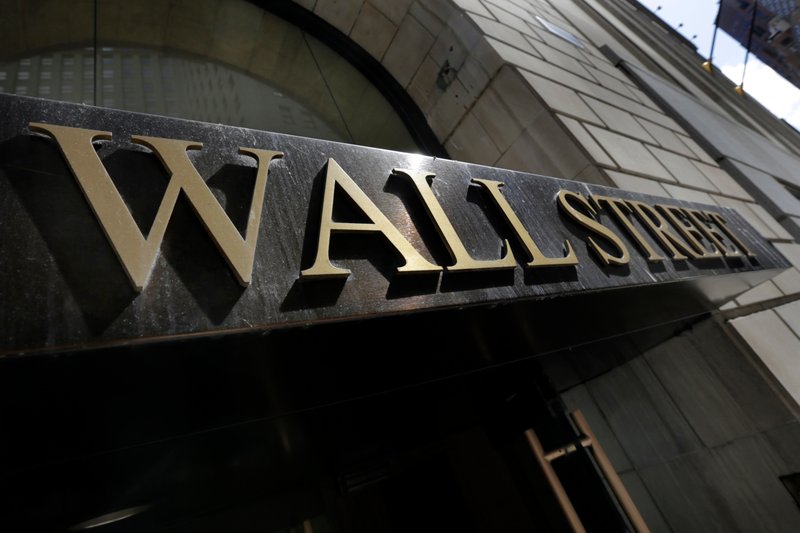NEW YORK -- Technology companies suffered another day of sharp losses Thursday and emerging markets slid on trade fears, although the broader U.S. market didn't fare as badly.
Chip makers sank after an executive from KLA-Tencor said business in the fourth quarter looks weaker than the company expected. Apple also fell, and social media companies continued to sink after Congressional hearings weighed on the stocks the day before.
"They have a target on their back," said Karyn Cavanaugh, senior markets strategist at Voya Investment Management.
The S&P 500 index shed 10.55 points, or 0.4 percent, to 2,878.05. The Nasdaq composite fell 72.45 points, or 0.9 percent, to 7,922.73. The Russell 2000 index of smaller-company stocks declined 13.18 points, or 0.8 percent, to 1,714.47.
Industrial companies and high-dividend stocks rose, which limited the market's losses. The Dow Jones Industrial Average rose 20.88 points, or 0.1 percent, to 25,995.87 as Boeing, 3M and United Technologies headed higher.
Apple fell 1.7 percent to $222.10 and KLA-Tencor lost 9.7 percent to $107.28. Facebook, Twitter and Alphabet, Google's parent company, all fell again.
The Nasdaq, which has a high concentration of technology companies, is down 2.3 percent this week. But for the second day in a row, big losses for technology companies and for Amazon, the second-largest U.S. company, were partly canceled out by gains elsewhere.
Cavanaugh, of Voya Investment Management, said investors are still optimistic about the U.S. economy, which has helped other stocks.
"They know the underlying fundamentals are good," she said. "Company earnings are not turning tail (and running away) because of the trade wars and all of the political drama."
Technology companies outperformed the broader S&P 500 in each of the past four years and they are doing it again this year. Cavanaugh said the companies have posted very strong profits at a time global economic growth has been slow, and investors will probably continue to find that appealing.
Bond prices turned higher. The yield on the 10-year Treasury note fell to 2.87 percent from 2.90 percent. That made big dividend payers including utilities and household goods makers more appealing, and their stocks rose.
The U.S. and Canada continued negotiations to keep Canada in an updated version of the North American Free Trade Agreement.
Meanwhile, media reports say the U.S. could soon put a 25 percent tax on $200 billion in Chinese goods. China has vowed to retaliate.
The U.S. and China have put taxes on $50 billion in imports in the past few months, but larger tariffs would represent a major escalation in their dispute. The trade spat is one reason the Hang Seng index in Hong Kong has dropped 18 percent since its peak in late January. It fell 1 percent Thursday.
That's one of a number of problems for emerging markets' stocks in recent months. While the U.S. economy has gained strength this year, other parts of the globe have weakened, and investors are worried that rising interest rates in the U.S. and trade disputes will harm fast-growing, but often fragile, economies elsewhere.
An index that tracks emerging market stocks, the MSCI Emerging Market Index, has fallen nearly 20 percent since its January high, and the currencies of Argentina, Turkey and Iran have all hit record lows.
While those countries face different problems, the Federal Reserve's interest rate increases affect all of them by driving up their debt costs and making U.S. assets more attractive. Investors are pulling money out of emerging markets, and that's exposed financial vulnerabilities.
Business on 09/07/2018
